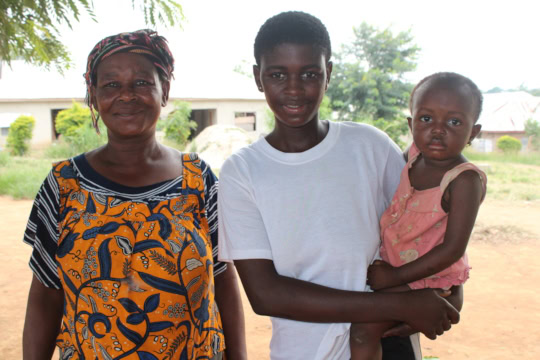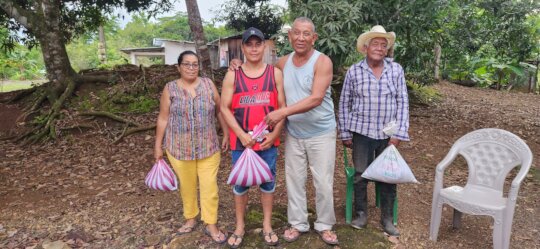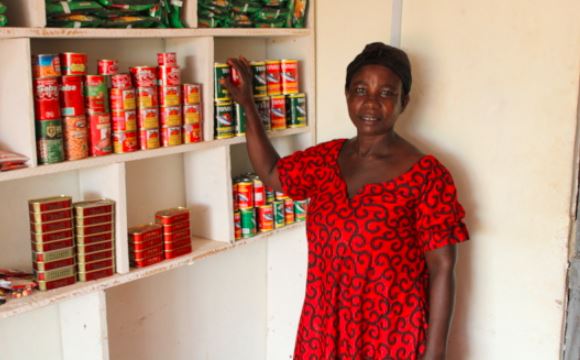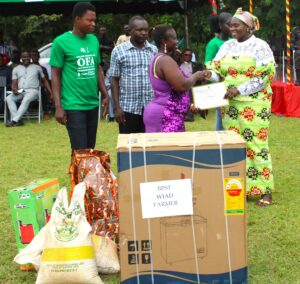Lessons Through Experiences of a Self-Help Intern Abroad

I had no idea what I would be getting into when I took my first steps out of the airplane that humid night in May. I couldn’t picture it, literally—the airport had lost power and it was completely dark. A few minutes later, I could see that I was surrounded by new conversations in another language, a new atmosphere, and a new culture. I hurried through the lines, eager to get outside the airport walls and embark on the adventure that awaited me. I was greeted by Nora, the Executive Director of the organization, and was quickly comforted when she gave me the SparkNotes version of what I could expect. I fell asleep that night with a million picturesque versions of what the next three months would be like.

Two months later, I can now say it was nothing like I had imagined—it’s better. You most certainly have your fair share of obstacles, but you get through them. There may be days the food just doesn’t agree with you, or get frustrated you can’t properly construct the right response to a question in the language, but it’s temporary. The obstacles that you dedicate your energy to most are the hours spent constructing ways on creative approaches to giving women confidence to start their own business. How will you help more children access clean water so they can be healthy enough to not have to miss school days? How much of that can you accomplish in just 3 months?
Before trying to apply strategic answers to these problems, you should know one fact remains constant: no matter how many books one may try to read or web pages they study, however many statistics they analyze or plans they create, they will never truly understand the culture of Nicaragua until they’ve stepped foot into the communities. It is in these communities off of a rocky, muddy, broken-into-by-horse-hooves path, that you’ll really find the heart of the country. Nicaraguans have such strong bonds with their family and neighbors, respecting everyone for the sole reason that they are human beings that deserve the same treatment. They may not always have as much as you’d expect a family to have, but they’ll invite you into their homes with welcoming arms, and hand you a fresh cup of coffee. As you talk to them, they’ll be listening intently, but they’ll also be cooking up something so that they can offer it to you for lunch.
I spent a week in Ochomogo with Micro-Credit Program Officer Yolanda Fletes, in a rural area just a few miles outside of the bustling city of Granada. I conversed and watched as 16 women were sworn into the program. I heard first-handedly, each dream for their business, and how all of them shared the same goal to provide an education and improve the well-being of their family. The number of women participating into the program since first being implemented, is now at an astonishing 152.
After interviewing a local about the water chlorinating system Self-Help provided, I have since learned that they have also given clean water to 65,000 other residents in neighboring communities. I fell in love with the work and mission of Self-Help, and hope that others take the opportunity to learn about it too.
I spent the first month soaking it all in and learning what plans are realistic and what plans perhaps may not work. Before coming to Nicaragua, I studied ideas for “policy nudges” for the country (authors Thaler and Sunstein define nudges as a way to improve our ability to improve people’s lives, without limiting their freedom of choice). I thought offering informative and positive messages posted in bathrooms and local offices would help those who experience domestic violence to build self-esteem. After stepping into these communities, I realized there aren’t separate bathrooms for men and women, there aren’t even public restrooms. The women don’t have the opportunity to go to local health offices, in part, because of the transportation costs (less than 50 cents a journey, but still unaffordable to many). There may not even be transportation available for those who could afford it. Most of the women cannot read or write. And if they can’t read and write during the business planning lessons, but they understand the lessons of bargaining and pricing themselves, why don’t we create a reference guide for them to take home using images of baking goods with the number of Cordobas (Nicaraguan currency) next to the items to represent the minimum range they need to sell their products for to earn a profit? (I’m now working with a graphic design student here in the US and a Peace Corps Volunteer and Self-Help staff still in Nicaragua to make these ideas into a reality.)
All of this is to say, I was thrilled to work for an organization that really gets it. That hires local staff to carry out the work among their own people so someone like me doesn’t show up with a list of great ideas from a textbook that are not actually so practical in practice. That trusts their staff to carry out the work and make adjustments to ensure that we’re leaving the communities better off than we found them, not just for today, but for the long term.
It’s quite challenging to summarize this experience in so few words. From the hospitality of everyone (including my amazing host family) to observing the lives of working families, I would never trade this experience for anything else in the world this summer. Nicaragua and this organization have so much to offer, and I am so grateful to be a part of it.
— Jacqueline Steinkamp
Jackie was the Communications & Policy Intern at Self-Help Nicaragua during summer 2016 when she wrote this reflection, and has since taken a position as the Communications and Development Officer at the Self-Help International headquarters in Iowa

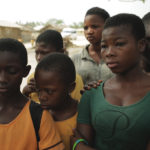 Previous Post
Previous Post